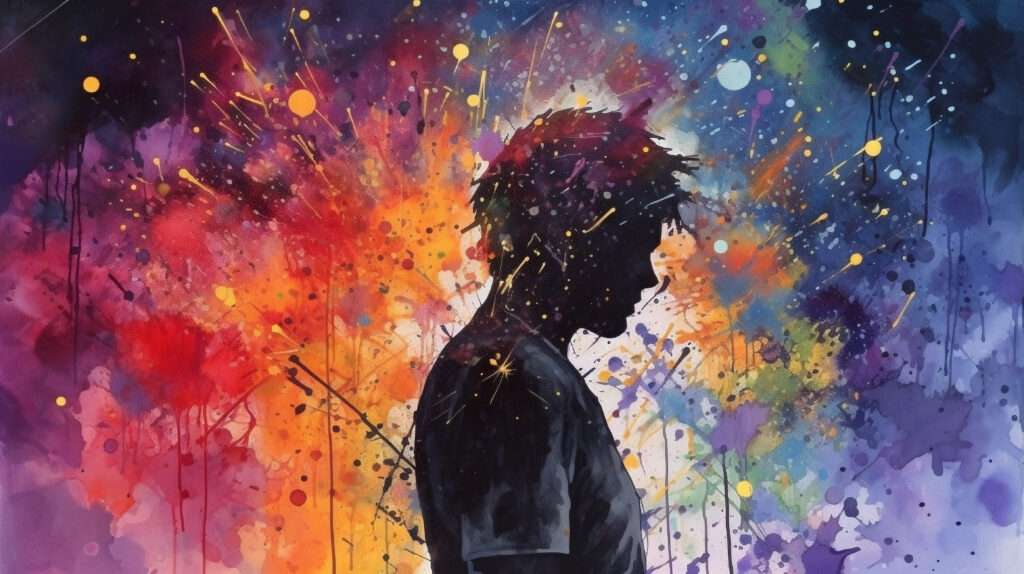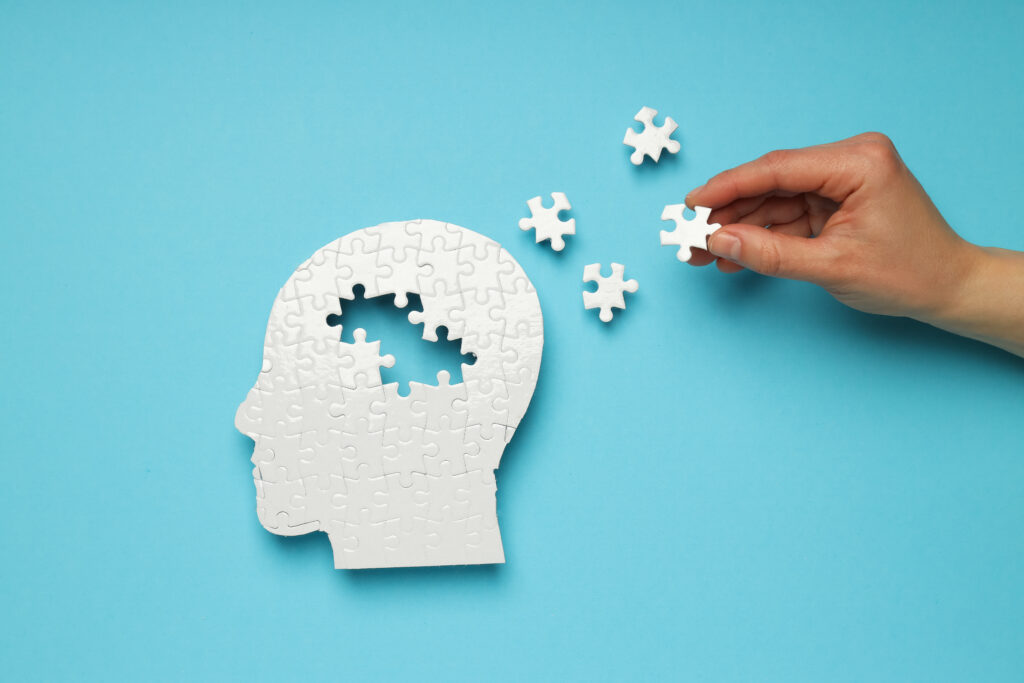Guide To Finding a Mental Health Facility in Dickson, TN
Even though mental health disorders form in our brains, they can impact other bodily functions and organs and cause daily life to feel like a struggle. Mental health disorders are just as real as physical medical conditions, and treatment is just as necessary.
Mental health can affect individuals from all walks of life. However, access to education and treatment can vary across different areas and communities. Finding a treatment center in Dickson, TN, that provides the individualized services you need might be challenging. TRUE Addiction and Behavioral Health understands this and has prepared a guide to finding a mental health facility in Dickson, Tennessee, to fill the gap.
Mental illness can be challenging, but your quality of life will improve once you learn strategies to cope with the symptoms and understand the condition.
TRUE Addiction and Behavioral Health’s Proximity to Dickson, TN
TRUE Addiction and Behavioral Health is conveniently located in Nashville, TN. In an hour, you can access primary mental health treatment. Individuals struggling with drug addiction can access a mental health facility where various treatment options and services await.
For those with a co-occurring substance use disorder (SUD), the availability of high-end sober living options and treatment services at TRUE cater to individual needs. Co-occurring conditions require a dual diagnosis that our providers can assess you on. Our residential treatment option removes the need for a long commute or putting your life on hold.
While staying at our facility, you’ll get the latest treatments and holistic therapies to help you feel better. We accept primary health insurance, select private policies, and offer affordable and accessible payment options. Our primary goal is to get treatment to Tennesseans who need it.
While getting treatment close to home works for some, a short drive and change of scenery can separate you from triggers or trauma that can exacerbate your mental illness. Whether inpatient or outpatient treatment, we use the latest practices in psychotherapy.

Mental Health Disorders We Treat
Post-traumatic Stress Disorder (PTSD)
PTSD develops after individuals experience or witness a traumatic event or series of events. A traumatic event could be combat, a car accident, rape, or a natural disaster. A series of events can include repeated domestic violence, sexual assault or abuse spanning an extended period, or consistent bullying.
Anxiety
There is a wide range of anxiety disorders. Different anxiety subtypes cause a person to worry about many things for an extended time. Individuals may focus on a specific object or idea.
Attention Deficit Hyper-Activity Disorder (ADHD)
Attention deficit hyperactivity disorder (ADHD) occurs when there are hindrances in the brain. There is disrupted functionality in the nervous system. This, in turn, affects attention, impulse control, and activity.
Bipolar Disorder
Bipolar disorder, or manic depression, is a chronic mental illness. The mood disorder affects 5.7 million adults in the U.S. Individuals with bipolar disorder cycle between manic highs to depressive lows that vary in severity. These shifts in mood, energy, and activity levels can be debilitating.
Depression
Depression is a consuming and crippling mood disorder. It’s sometimes called major depressive disorder (MDD) or clinical depression. 29% of U.S. adults have a diagnosis of lifetime depression. This mental health condition negatively transforms people’s feelings, thoughts, and actions.
Obsessive Compulsive Disorder (OCD)
Obsessive-compulsive disorder (OCD) is when individuals have obsessive thinking patterns, including unwanted thoughts, images, or urges that make them anxious or distressed. Other examples of OCD can include fear of contamination, doubts about completing a task, or thoughts of aggression.
Panic Disorder
Panic disorder is an anxiety disorder that presents as recurring or unexpected panic attacks. Panic attacks can happen to individuals with other mental disorders. The difference with panic disorder is that panic attacks occur frequently and come with behavioral changes, including trouble breathing, racing heart, trembling, and feelings of terror.
Personality Disorder
Personality disorders are mental health conditions represented by ongoing behavior pattern changes, lack of cognitive awareness, and turmoil of internal experiences. These characteristics usually do not align with society’s expectations of a stable quality of life. People with personality disorders experience distress and impairment that makes daily functions difficult.
Schizophrenia
Schizophrenia is a complex brain disorder. A definitive trait of the condition is hearing voices that aren’t there. Individuals often have disturbances and hallucinations related to persecution or conspiracy theories. They may believe that others are plotting against them or spying on them. It impacts the clarity of mind, behaviors, and the ability to relate to others.
Our Mental Health Treatment Programs
Effective treatment, rehab programs, and proper education regarding mental health are important to us. The Substance Abuse and Mental Health Services Administration (SAMHSA) explains that mental illness can’t be cured. Still, with the appropriate resources and treatment, individuals can learn to manage the symptoms and maintain a productive lifestyle. TRUE provides individuals with access to programs that are accommodating to a variety of schedules and individual needs.
Intensive Outpatient Program
Our intensive outpatient program (IOP) allows clients to have a flexible treatment schedule where they can continue daily activities and still receive care. Our clients choose the plan that works with their outside obligations. IOP provides more support than traditional outpatient programs because therapy sessions are more frequent, and clients can participate in more support group activities.
Our outpatient treatment also costs less since the commitment isn’t full-time. While the cost may be lower, access to quality treatment remains the same. Our IOP program includes access to group therapy, holistic therapy, and trauma-informed care. These are all effective for treating mental health symptoms.
Partial Hospitalization Program
Our treatment center’s partial hospitalization program (PHP) benefits individuals with mental health disorders. This program is ideal for patients needing more than outpatient care without 24/7 inpatient treatment.
Our PHP program and clinicians help individuals with mental health symptoms by providing a safe and structured environment with access to medical supervision, including therapy with family members and one-on-one and group therapy with individuals with the same mental health disorder.
Our clients can access care during the day and return home in the evenings to continue their routines. You can practice new behaviors, overcome symptoms, and build social connections in a supportive community.
Sober Living Program
Our sober living program offers structured housing that provides additional accountability through drug tests and curfews. Sober living is often used in conjunction with PHP and IOP. Sober living makes for an easier transition back to daily life and obligations.
We have four sober living models depending on your treatment needs. They include the following:
- Peer-Run
- Residents usually know each other
- Everyone agrees to the house rules
- Expect house meetings, drug screenings, and holding each other accountable
- Our clinicians do not come out to the sober living homes
- Therapy continues in our treatment facility
- Monitored
- Residents typically share a single-family home
- A senior resident acts as the house manager
- Follow pre-established house rules
- Expect house meetings, drug screenings, and holding each other accountable
- Supervised
- Our treatment facility has direct involvement with consistent monitoring of the mental health conditions of residents.
- Access to health services, coping skills, and other psychotherapy
- Participate in individual and group sessions
- Integrated
- A transition after completing a mental health treatment program
- Access to health services, coping skills, and other psychotherapy
- Participate in individual and group sessions

Our Mental Health Treatment Approaches
Our clients will receive access to behavioral health services, holistic therapies, and other forms of mental health treatment.
Cognitive Behavioral Therapy
Our therapists provide evidence-based cognitive behavioral therapy (CBT) in individual, group, or family therapy interventions.
Positive CBT is a form of CBT that focuses on the steps that our clients take to work through their mental health symptoms. From there, we build on those actions to create a toolbox of measures.
Trauma-focused CBT addresses the underlying trauma that is often the cause of mental illness and co-occurring substance abuse. Trauma-focused CBT can be sensitive for some clients because they must recall the traumatic experiences or memories that led to their disorder.
Acceptance and commitment therapy (ACT) focuses on helping our clients develop strategies to adapt to changing situations and shift their perspectives when responding to challenges. When adding this approach to our client’s mental health treatment plan, we can better provide the tools to navigate life, manage stress and anxiety, and maintain positive social relationships.
Dialectical Behavioral Therapy
Dialectical behavior therapy (DBT) is a cognitive behavioral and psychological practice for treating mental illness. DBT effectively treats many other disorders, such as substance dependence, depression, anxiety, eating disorders, and post-traumatic stress disorder (PTSD), that may be underlying factors for mental illness.
DBT helps clients who struggle with managing their emotions and relationships and those considering self-harm. This treatment service is ideal for individuals with emotion regulation, impulse control, and social difficulties brought on by mental health disorders.
EMDR
Eye movement desensitization and reprocessing (EMDR) helps our clients process and overcome traumatic experiences that can impact mental health. EMDR is based on the idea that unresolved traumatic memories are stored in the brain because individuals can experience distress and symptoms years after the event.
EMDR involves a structured approach that includes identifying a target memory. Using eye movements, sounds, or taps, your therapist will activate the brain’s natural healing processes. The brain reprocesses the memory with a more adaptive resolution. You learn to reduce the traumatic memory’s emotional intensity and reprocess it so it no longer causes distress.
Holistic Therapy
Holistic therapy is an alternative treatment service that focuses on the whole person, not just specific addiction-related symptoms. Our therapists consider our clients’ physical, emotional, mental, and spiritual well-being, allowing them to achieve balance and develop coping skills.
Our holistic options include the following:
- Music therapy can stimulate emotions, evoke good memories, and boost relaxation. In music therapy, we engage in activities such as listening, playing instruments, singing, or composing music. These activities can help you express your feelings, reduce stress and anxiety, and provide a healthy emotional outlet for coping with mental illness. Music therapy also promotes self-awareness and self-expression and supports emotional regulation.
- Art therapy can include drawing, painting, sculpting, and more. It promotes self-confidence and self-esteem, doesn’t require dialogue, and is a judgment-free safe space. Through creating art, individuals can explore and communicate their emotions, thoughts, and experiences in a nonverbal and symbolic manner.
- Yoga, fitness, and movement therapy involve physical activities such as yoga stretches, dance, fitness, outdoor recreational activities, and martial arts to support healing and recovery. It helps our clients express emotions, reduce stress, improve body awareness, and develop healthy mental health coping strategies as part of their treatment.
- Equine therapy stimulates physical, emotional, cognitive, and social well-being. We use horses that are trained for therapy purposes. We incorporate them into various therapeutic settings to facilitate positive individual outcomes, including reducing stress and tension, body awareness, and emotion regulation.
- Acupuncture is the ancient Chinese practice of acupuncture. Thin needles are inserted into specific points on the body. The needles create an energy flow known as Qi (pronounced “chee”) that follows pathways throughout the body. Balance is restored, which promotes health and well-being.

Hospitals and Mental Health Facilities near Dickson, TN
For some individuals, family, work, school, and other commitments can make it challenging to be away from Dickson for an extended period. We aim to provide you with the resources you need regardless of where you receive it.
Below are options that allow you to enter a treatment program that fits your needs if leaving Dickson isn’t an option.
Hospitals Near Dickson, TN
- TriStar Horizon Medical Center
111 Highway 70 East, Dickson, TN 37055 - TriStar Centennial Medical Center
2300 Patterson Street, Nashville, TN 37203 - TriStar Ashland City Medical Center
313 North Main Street, Ashland City, TN 37015 - Vanderbilt University Medical Center
1211 Medical Center Drive, Nashville, TN 37232
Mental Health Facilities Near Dickson, TN
- TriStar Horizon Behavioral Health
111 Highway 70 East, Dickson, TN 37055 - Mental Health Cooperative – Dickson Outpatient Clinic
101 N. Mulberry Street, Dickson, TN 37055 - Centerstone – Dickson County Office
224 N Main St, Dickson, TN 37055 - Centerstone – Humphreys County Office
1020 County Campus Drive, Waverly, TN 37185 - Rolling Hills Hospital
2014 Quail Hollow Cir, Franklin, TN 37067 - TrustPoint Hospital
1009 North Thompson Lane, Murfreesboro, TN 37129 - Cumberland Mental Health Services – Montgomery County
611 Eighth Street, Clarksville, TN 37040 - Cedar Grove Residential Treatment Center (Youth Focus, Inc.)
8346 TN-100, Bon Aqua, TN 37025 (serving youth and adolescents)
Get the Help You Deserve Now
Call us if you’re ready to break the cycle of mental illness and co-occurring substance use disorders. Our team understands each person has a unique set of needs, and we have a mental health disorder treatment team equipped to handle your needs.
Verify Your Insurance Online
We are here to help. Contact us today and get the answers you need to start your journey to recovery!
